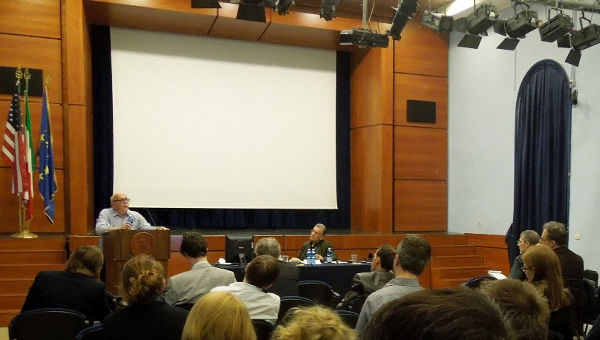JCU Hosts Cosmopolitanism and Conflict Conference
John Cabot University hosted an international conference on ‘Cosmopolitanism and Conflict’ on October 11-13. The three-day event focused on developing contemporary ‘cosmopolitan’ ideals of human rights, equality and global community in the light of the contemporary conflict-ridden realities of global politics – and thus such issues as war, humanitarianism, poverty, revolution, global democracy, and migration.
There were nine plenary lectures, along with twenty other papers discussed in parallel sessions.
At the plenary sessions on the first day, James Bohman (St. Louis) argued for the role of mass social movements in resolving transnational political problems, Robert Fine (Warwick) elucidated Hannah Arendt’s sense of the contradictory nature of ‘revolutionary’ thought, Daniele Archibugi (CNR, Rome / Birkbeck) considered the development of international criminal justice, and Hauke Brunkhorst (Flensburg) presented a social evolutionary critique of the European Union.
On the second day, Sankar Muthu (Chicago) analyzed Immanuel Kant’s ambivalent understanding of ‘antagonism’ in international affairs, Robert Bernasconi (Penn State) argued that Kantian cosmopolitanism has a ‘racist’ attitude to local cultures that resist it, and Costas Douzinas (Birkbeck) criticized cosmopolitanism as a ‘secular theology’ that fails to do justice to contemporary protest movements.
And on the final day, Pauline Kleingeld (Groningen) argued that Kant abandoned his support for colonialism in his later work and Patrick Hayden (St. Andrews) proposed a cosmopolitan attitude based on the existentialism of Albert Camus.






